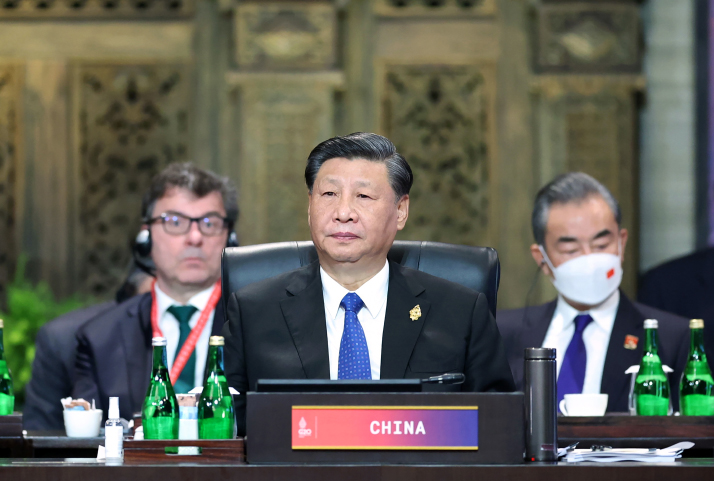BEIJING: “Indonesian people and global citizens hope the leaders refrain from using the precious moments during the summit simply as opportunities to criticize and attack one another.” One week before the 17th Group of 20 (G20) Heads of State and Government Summit kicked off in Bali, Kornelius Purba, senior editor of Indonesia’s English newspaper The Jakarta Post, published an article titled G20 Leaders, Please Don’t Come to Bali Just to Quarrel, advising leaders unwilling to work together to address the world’s economic and security conundrums to at least “lower their ego as not to worsen the suffering of many people across the globe.”
Against this backdrop, the G20 Bali Summit took place on November 15 and 16. It was the second in-person meeting of the leaders of the world’s major economies since the onset of the COVID-19 pandemic, following the virtual 2020 and hybrid online-offline 2021 summits.
“This summit would probably be the most divided and most uncertain summit to date,” Xu Feibiao, Deputy Director of the Center for BRICS and G20 Studies at the China Institutes of Contemporary International Relations, told Beijing Review before the summit. Since late February, major events under the G20 framework, including ministerial meetings and working group meetings, have had difficulties coming to a common statement or declaration. Even less sensitive issues, such as tourism recovery, have resulted in opposing emotions. “This is very rare in history,” Xu said, adding the international community at one point even worried the summit would encounter the same obstacles and not be able to issue a joint leaders’ declaration.
But the outcomes far exceeded original expectations as the participating leaders reached concrete and pragmatic consensus on several issues. “…We [the G20 members] will take coordinated actions to advance an agenda for a strong, inclusive and resilient global recovery and sustainable development that delivers jobs and growth,” the G20 Bali Leaders’ Declaration read. “Global society can indeed be said to have come to an inflection point, a relatively successful G20 summit at this time can make history,” Jia Wenshan, an academic member of the Institute for Global Cooperation and Understanding under Peking University and distinguished professor at Shandong University, explained to Beijing Review.
–The Daily Mail-Beijing review news exchange item






